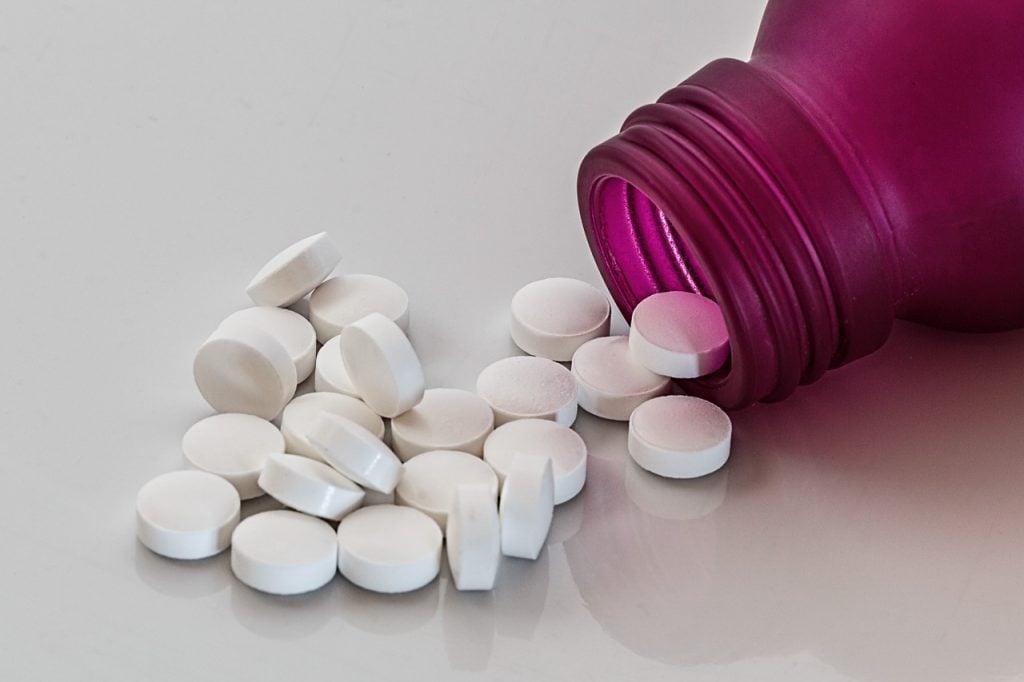CNBC transcript: Eli Lilly And Co (NYSE:LLY) Chairman & CEO David Ricks speaks with Meg Tirrell live during CNBC’s Healthy Returns Summit today
Q1 2021 hedge fund letters, conferences and more
WHEN: Today, Tuesday, May 11th
WHERE: CNBC’s “Healthy Returns Summit: New Era of Innovation”
CNBC's Interview With Eli Lilly CEO David Ricks
TYLER MATHISEN: More than six million Americans have Alzheimer's disease, and that number predicted to escalate more than double by 2015, yet the FDA has not approved a new drug to treat the disease since 2003. Our next guest is hoping to change that. David Ricks is the Chairman and CEO of Eli Lilly and Meg Tirrell is back to ask him about Alzheimer's progress and much, much more. Meg.
MEG TIRRELL: Ty, thanks so much. Dave Ricks, thanks for being with us. And let's start right there on Alzheimer's. You and I have talked a lot of times over the years about this long, hard fight that perhaps no company has been more invested in for a longer period of time than Eli Lilly. And it has been just so tough. You now have a very promising-looking drug that is moving through clinical trials. Give us a little bit of the history for Lilly in the Alzheimer's space for folks who haven't followed it closely, why it's been so tough, and tell us about this new drug you have and why you're hopeful about it.
DAVID RICKS: Thanks, Meg. Great to be on. And, you know, clearly as we look at the field of healthcare ahead, you know, the unmet needs in neuroscience and mental health still have to be the greatest gap we have. And so we're, I guess, on the one hand proud to have worked for so long and so hard on those diseases. On the other hand, you know, we have come up short. But as you point out, we're continuing to work on this, and we think getting closer and closer to the goal. As you know, we've been working on Alzheimer's for more than 30 years and, in some ways, the story of Alzheimer's, which is moving, is sort of the normal pace of change in medicine, maybe the Covid pandemic gave us a sense that everything could move that fast, we want to speed things up, but we started with a vague idea about how this disease works, and really measuring phenomena when we have, give a substance, what happens. Through the years, though, I think some adaptations occurred that are allowing us to get closer to the goal, that are also true across all other forms of drug development. The first is that we're getting better ways to measure change. And, you know, we start by asking doctors what they think, but more and more we're relying on biologic changes we can observe in the patients' brains, in this case via PET scanning and other tools, see, are we moving biology. Another thing is we've opened up new target opportunity by using new modalities to target biology. In this case, therapeutic antibodies which have been worked on for sometime. We're even talking about other modalities in the future, gene RNA therapies, for instance, for diseases like Alzheimer's. That will allow us to move quicker, but also target these diseases more carefully. And, finally, patient selection; which patients to work on and when. Here's a lifetime disease that probably has 30 or 40 years of runway before we see symptoms. When do we intervene and when's the best time for this drug to make a difference? We're narrowing in all those things and, as you point out, we had a positive Phase 2 study for a drug called Donanemab. In Q1, we're doing a replication study now, excited to get those results over the next year or two.
MEG TIRRELL: So as you are working on that drug, Biogen has a drug that is up in front of the FDA, aducanumab, which is working the same areas for targeting those plaques in the brain as well. How important is what the FDA does about the Biogen drug for your program and sort of what it signals about how the regulator is looking at Alzheimer's disease drugs and the kind of evidence needed to approve them?
DAVID RICKS: Well, on the first count, look, as someone who has had people with Alzheimer's in my family and has seen the impact of this disease, I'm hopeful that medicines can be available to treat them, because as you know, it's the only killer. And Alzheimer's is, we don't talk about it this way often, it is a disease that kills those who are afflicted with it and it does so in about seven years from diagnosis. So, it's a fatal condition that we have nothing to slow down or stop, so we need medicines here. And one of the problems in investing in this area, as you know we've been one of the few that have invested along the way is it hasn't been particularly rewarding or practical for a lot of companies, particularly those with, you know, less financial capability than Lilly. So, in those regards, you know, I am hopeful that the FDA will begin to approve drugs here. I do think, of course, there's been controversy with that package, and the company sponsoring that can talk about it. But through the course of development, you know, we've seen these problems of: Do we have the right target, are we treating the patient at the right time and are we measuring the changes effectively enough, as I just mentioned. And one of the ways we think our program has really improved in the past is by improving all three of those things. Ours is a plaque-clearing antibody that's very effective, deep clearance of plaque very quickly. We're putting the right patients in the study. In this case we measured a protein called "tau," which is thought to be more aligned with symptoms, and we're measuring change with PET scan in every single person, so we can see pathology. And we think that's the way forward, and we'll watch it very carefully, what happens with this approval and take our cues from that. We have already started our replications study and feel good about the probability of success there.
MEG TIRRELL: And for folks who have family members with Alzheimer's, the timing is such an important question, as it is, of course, also for your investors who have been so patient if they've been with you for 30 years in your Alzheimer's quest. What kind of timing are you expecting for the pivotal data for Donanemab and then potentially for getting through the FDA if they look good?
DAVID RICKS: Yes, so we'll, we have to finish recruitment in this replication study, which is about four times the size of the phase 2 study, this fall, and then the study is designed to go 18 months. And so, you know, on the long end will be to follow that all the way through, submit it to the FDA and have a review. So that would put us, what, into late '23, early '24. But there are opportunities, as you know, from adaptative pathways at the FDA to consider looking at data sooner or have other ways to move more quickly to parts of the review that are not sensitive to that endpoint time period. And we want to explore all those with the agency. There are no guarantees there, it's their judgment to make, but those pathways are available and we think they should be applied in a serious and widespread condition like Alzheimer's.
MEG TIRRELL: You mentioned new approaches to Alzheimer's through gene or RNA therapies. Of course, you know, anyone hearing the letters "RNA" these days might think mRNA.
DAVID RICKS: Yes.
MEG TIRRELL: Are there approaches using potentially messenger RNA? Or I know there are other applications of RNA therapies that could really be kind of a sea change approach to Alzheimer's that could move a lot more quickly, that could just show, you know, different kinds of positive results at best like we've been able to see with these amazing vaccines using mRNA.
DAVID RICKS: Yeah. I mean, RNA technology writ large is a fascinating new topic that is in the public domain, you see it on the cover of, you know, everyday newspapers and on your TV program all the time. What is it? Well, you know, it's really the upstream step of creating proteins, and proteins are the building blocks of life, but also the main target of every other drug we've made in the history of the pharmaceutical industry. We've targeted them more directly. Here we're saying, let's target them upstream in their formation, and the mRNA vaccines do that in a different way from other technologies which we're more focused on. In particular, short interfering RNA, which is a kind of blocking to that protein being made. So what we do is we look for diseases that have too much of a protein that we can block with a single short interfering RNA, and we then look to make kind of the blocker for that and give it over time. These have the advantage of being very targeted. So the idea of having fewer side effects if can you get them to the tissue of interest, the brain in this case, and very long-lasting. The potential for a dose every three or six months, which is, I think, highly preferred to a daily pill or a monthly infusion or what have you. So, we're looking at that for all the neurodegenerative diseases because they present good targets. Increasingly, the roadmap for human genomics is unfolding in brain diseases, and we may not start with Alzheimer's directly, but Parkinson's, ALS, other neurodegenerative conditions that have similarities to Alzheimer's are places we are exploring, along with, of course, Alzheimer's because we have been at that so long. So that's in the future, but really promising and very interesting new modalities for treatments, all based on this, I guess, broad RNA revolution.
MEG TIRRELL: And, of course, Lilly has been working itself on drugs for this pandemic, and I want to get to your work there, but before I do, as kind of a segue, you've got a lot of clinical trial programs going on in a lot of different diseases. And throughout this last pandemic year, you know, we've seen people missing their doctors' appointments, it's been harder for folks to get preventive care. What has been the impact of the pandemic on your ability to run clinical trials? Have there been any delays in your programs because of the pandemic?
DAVID RICKS: It's so interesting. You know, a year ago about this time, we were really digging into this question. I think we might have been one of the first companies to announce that we were suspending the starting of new trials in April of last year, and then pausing enrollment as well, because healthcare systems in very specific geographies sort of collapsed. Their ability to run clinical trials really was diminished. But bit by bit, we put this back together, and really by the end of the second quarter last year had done a number of things to restore clinical starts. We actually had a record number of Phase 1 starts last year for our company. And then, also, continued enrollment in the big studies. And, interestingly, these new ways, which are mostly embracing remote enrollment, remote patient monitoring, and even in some cases patients self-monitoring and taking their own laboratory tests, for instance, and sending them in, either digitally or physically in the mail, we ended the year really just on schedule last year for what we had expected to without the pandemic. I think it really points to the future of clinical trials, Meg, which is one where we probably can use less healthcare infrastructure to get the scientific answers with need. And this opens the promise of doing studies faster, doing them cheaper, but also accessing new populations. And I think we've all talked about extensively the problem of diversity in clinical trials, reaching populations that the healthcare system doesn't support very well. Here, we might have a chance to do better than that, with more remote kind of clinical trial enrollment, self care and data reporting.
MEG TIRRELL: Yeah, the pandemic has transformed so much, and it would be wonderful to see some of the things that the adaptations that work well, to be continued through. I want to ask you also about Lilly's plans as a major employer to bring folks back to the office as we get through this. I imagine, given the work you do, a number of your employees didn't have the ability to work from home through the pandemic. But I saw some local Indianapolis press yesterday saying Lilly plans to reopen its offices, at least to some degree, this summer and require vaccination. Can you tell us about your approach to that?
DAVID RICKS: Yeah, for sure. And it is a good reminder that actually a pretty good chunk of our employees have been working all through the pandemic, in our laboratories here in Indianapolis and other key locations, and in our plants. Which, you know, thankfully, those folks came to work every day even through the teeth of the toughest part of the pandemic to make, you know, life-saving products, cancer medicines, insulin and keep that flowing. And to my knowledge, we didn't miss an order, which I think that could have been cataclysmic to the healthcare system if we had secondary problems with the healthcare system. I'm super proud of all those people. And we couldn't have developed new Covid therapies without our folks coming to the labs during that period of time. But of course, we have office workers, too. And on March 9th last year, I think we were the first major employer in our state to send everyone home. At that point, we didn't know the duration. It turned out to be longer than we thought. But now we're planning for exit. We have good vaccination uptake in our employee population. The state is okay. We're encouraging everyone to get vaccinated here in our surrounding communities. But the risk levels are dropping, as we see in many, many other parts of the country. And because of that we now need to plan a back-to-the-office strategy. One important thing is we've learned how to work differently during this pandemic, especially office workers. There's been a lot of talk about, okay, do we need offices at all anymore? We're sure we do. A lot of work needs to be done face-to-face, collaboration, apprenticeship and learning, alignment and connection that we all know brings joy to work with our colleagues. But some things can be done remotely, and we want to embrace that and give our office workers more flexibility. We will start in June with kind of a soft open, June 1st, here at the corporate center where I am now where we will bring, invite, bring 25 percent of the employees back. The rules will be distancing, masking and vaccination. Very conservative, but I think appropriately to let us sort of experience what that's like again. And then we are planning after the 4th of July week to open everything up, as long as the case rates continue to drop and our employee vaccination rates are as high as we believe they will be at that time.
MEG TIRRELL: We are getting a question from a viewer for you. Mel asks: “Is there any credible role that the pharmaceutical industry can play in lowering vaccine hesitancy, or put another way, in boosting vaccine confidence?” Lilly, obviously, is not a vaccine maker, but as a member of the industry, do you think there's a role that the industry can play here?
DAVID RICKS: It's a great question. And I'm sharing pharma right now, and we've had this debate at our board because there's nothing we want more than to really have everyone enjoy the benefits of vaccination for themselves and then for our communities to enjoy the benefit of that herd protection. It's been long said we would have kind of a shortage of product at the beginning and a shortage of recipients at the end, and I think we have now made that pivot to the second part of this. And I think the answer probably isn't a megaphone from the pharmaceutical industry, but there are things we can do by working in our local employment communities to make a difference. We're doing that here in Indianapolis partnering with faith-based communities, partnering with other locally trusted sources like in the healthcare system and otherwise sports, sports stars to deliver public messaging, we've been a part of a coalition that supported that, and really get into people's communities from those that they trust. That's the last mild problem that we face. And if I could just observe as well, I think the country nationwide needs a lot more of this right now. It is in our grasp to get to pandemic exit, but it's not there yet, and the difference will be more vaccinations in the next 60 days.
MEG TIRRELL: Well, where Lilly has been working directly, of course, is in developing antibody drugs and also others to treat Covid-19. We talked with Dr. Walensky about how antibody drugs are just hard because they're IV administrations. We know that you are working on other ways of delivering these medicines that might make it easier for folks. What is the status of those?
DAVID RICKS: Yeah. Well, we're super proud, as I said, of the efforts. We stood up to deliver, you know, in the U.S., over a million doses of these antibodies. To our knowledge, about half a million were delivered to people in the teeth of the crisis. And estimates, based on our studies, is we probably saved a little more than 10,000 lives. So that's what we're here to do, solve humankind's tough problems and do it in a time scale that matters, and we did that. Of course, we were moving very fast from project start in March to delivering those first doses in November. As you know from covering our industry, that's an unheard of time scale for a new drug development. And in doing so, we didn't seek to optimize this therapy for convenience or even dose or even cost or any of those things. We just wanted to get it safely to people and have them be aided, which we did. But in the background, we began working on optimization. So how could we make more? How could we deliver it more conveniently? And this thorny question of viral evolution and how to stay in front of that. And we have projects on all of those dimensions. I think our partner at Selora had a press release recently about one of those projects, the so-called 1404 molecule, which promises to be much more variant-resistant and much lower dose. So here you can imagine a subcutaneous self-injection, or by a pharmacist or something. That would really help, because the best time to administer antibodies is right after the positive test if you're high risk. Today, about one in three Americans are getting an antibody when they're in that high-risk group. That's much better than in December, where it was like one in ten. But surely that number could improve if we had sort of pharmacy administration and self-injection. So we are working on that very hard in case there's more outbreaks here, but also to address the global problems that are presenting themselves like in India and around the world where we still have raging Covid disease.
MEG TIRRELL: Absolutely. And, of course, the industry has been working toward ways of getting drugs to India and other materials quickly, as has, of course, the government been making those kinds of donations. Of course, another question about India has been this idea of waiving the patent protections around the Covid-19 vaccines so that countries around the world could manufacture them more quickly. And I think we know the industry's response to that, but I would ask you how, as the CEO of a company that makes insulin and many other drugs, you respond to folks like Representative Alexandra Ocasio-Cortez, who immediately tweeted after seeing the stock reaction to the idea that we might waive Covid IP vaccine protections, she said "Now do insulin." Does the industry view this approach from the Biden administration as kind of a shot across the bow that could affect other medicines as well?
DAVID RICKS: Well, that remains to be seen. I think it's an unfortunate turn of events because, you know, the representative you mentioned and others who are proponents of this, I don't think understand the issue particularly well. As it relates to Covid, you know, what does a patent do? It forces disclosure in exchange for exclusivity. So, actually, by the publication of the patents, which are already on the Internet for both Moderna and BioNTech's so-called recipes to make this, it's already disclosed, it's out there. Anyone can make those. And most companies, including Lilly, don't enforce our IP in low- and middle-income countries. So, if that capability, if there was a desire to fund that, that could already happen. The problems in getting vaccines to the world are quite different and require a huge supply chain effort. I believe the number of vaccines for Covid we'll deliver in a year as an industry is double the normal vaccine production for all other diseases. So, it's a huge operational lift in that case. As it relates to insulin, you know, our insulins are, as it has been pointed out by that same representative, are old products. We actually don't have any enforceable patents or any that we're enforcing on insulin in the U.S. or anywhere else. For human insulin, for Humalog, anyone can make them, they just don't because ironically although we hear a lot of complaints about the pricing of insulin, it's a noneconomic proposition for most biosimilar companies. It's too difficult and too expensive versus the value they can capture. That sounds strange, but I think that is the facts. Insulin is cheap and widely available in many other markets, as also has been pointed out by representatives in Congress. And so I don't think there's a lot of value in discussing this with those established medicines you mentioned. As it relates to new medicines, like Olumiant, it's a baricitinib which has an EUA in the US for Covid hospitalized patients, I think we showed a better way, which is to just work on the human problem ourselves and with governments. And here, we worked with the Indian government to get baricitinib approved in India, it wasn't until just few weeks ago, and we've in a very short time given voluntary non-royalty bearing licenses to three large domestic manufacturers and donated a huge quantity of baricitinib ourselves, which is literally on a plane now to India to help aid the problem. Those are the kinds of solutions that can actually save lives. And I think this IP discussion is an unfortunate sidebar. In the end, we will have more people vaccinated and more people treated for Covid if industry and governments work together to solve the problem.
MEG TIRRELL: All right. Dave Ricks, we've got to leave it there. I could keep going for a while, but they're telling me I have to stop, so thank you so much for being with us. We really appreciate it.
DAVID RICKS: Okay, great. Thanks. Bye-bye.













